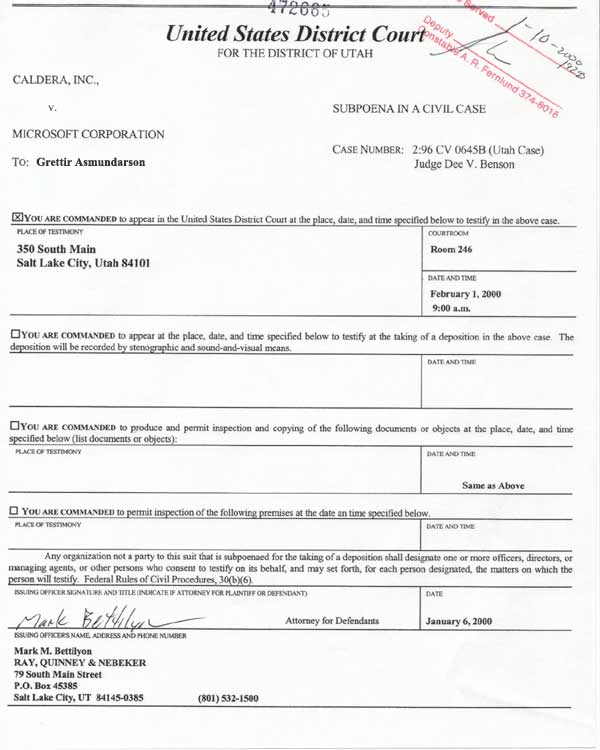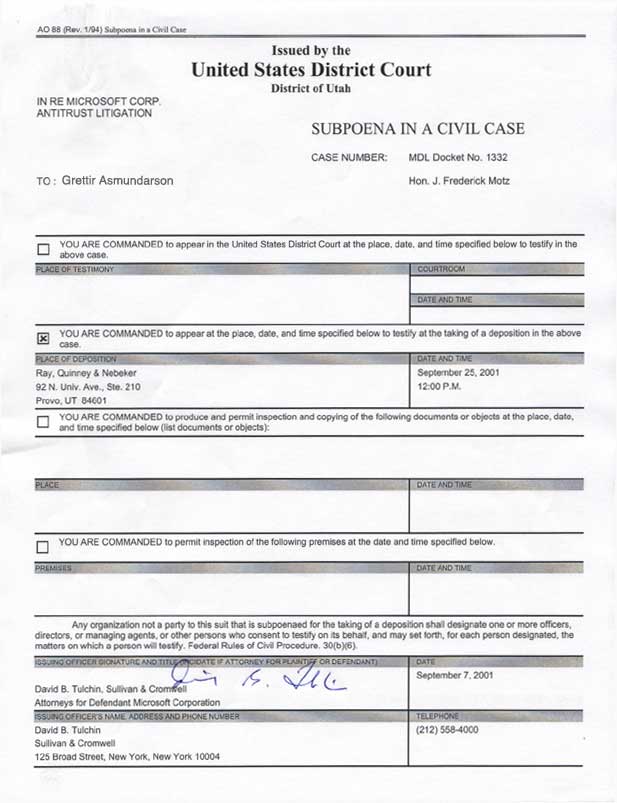
“I Like The Poof!”
The other day, icons started mysteriously disappearing from the Mac OS X dock on the Mac we have at home. First, the Microsoft Office apps disappeared. I added them back, but then a little later in the day a few of Apple’s iApps (iTunes, iPhoto, iChat) icons disappeared, too.
Sometimes its easy to drag something from the dock accidently, so I didn’t think too much of it. But then last night I noticed that every icon in the dock was gone except for the Finder, the Trash can, and the two apps that were currently running (which can’t be removed).
My girls had been playing on the computer a little earlier in the evening, so I brought them in and started the interrogation:
“When you girls were playing on the computer tonight, did either of you drag some of the icons from the dock down here?”
Zoë, my youngest, started looking a little sheepish, so I asked her, “Zoë, were you playing with some of the pictures down here?”
“I like the poof!” she exclaimed.
…and I knew exactly what she was talking about. When you drag an icon to remove it from Mac OS X’s dock, the icon disappears in a little puff of smoke. It’s a cute little UI touch. So cute, in fact, that Zoë wanted to see it again and again.
This got me thinking. I don’t think an operating system should do anything even vaguely cute or entertaining when you are deleting, removing, or formatting anything. If, when you formatted the hard drive, a rabbit appeared on the screen and danced about singing “I’m a Yankee Doodle Dandy,” our hard drive would have been toast a long time ago.
Viva La France
A few weeks back, the California correspondent for Libération in Paris (France, not Idaho) contacted me about the death of Radio Free Tiny Pineapple. She was doing a piece on the impact of the recent CARP ruling and wanted my perspective on things.
They published the piece this past weekend, but since I don’t speak French I’ve had to rely on the web-based translaters in order to see how it turned out. As sometime happens, it appears that most of my stuff ended up on the cutting room floor, but near the end of the article entitled “American webradios with the barks” I’m quoted as saying:
[Note: This sounds especially good if you say it with an indignant French accent.]
“Honestly, I do not see any means of survival for the majority of radios Internet. The industry of the disc does not want any, and will return the impossible life to them.”
I don’t know about you, but I will henceforth always refer to the media conglomerates as “the industry of the disc.” And I if anyone ever crosses me, I swear I’ll “return the impossible life to them!”
Nag, Nag, Nag
I usually hate those nagware screens that appear when you start some unregistered shareware programs, but occasionally I’ll see the following when launching my unregistered copy of OmniWeb:
This copy of OmniWeb is not licensed.
A man in Chicago licensed OmniWeb and the next day he got free fries with his burger. A woman in Des Moines didn’t license it and a week later she stubbed her toe really badly. Coincidence?
It makes me want to register the product. Not to get rid of the nag screen, but to reward them for it.
My Microsoft Subpoenas
In a previous incarnation I worked in the IT department of WordPerfect Corporation before it merged with Novell. Part of my responsibilities there included evaluating all of the new hardware and software products that were coming out to see if we wanted to include them on our list of approved corporate standards.
Hardware and software companies would often send us samples of their products in hopes of getting their products on the standards list. After taking a good look at the products and testing them in our lab for a few days, we would often write up a product evaluation for the vendor. This evaluation would explain what we liked and/or didn’t like about the product along with a recommendation on whether it should be added to the corporate standards list.
When the merger of WordPerfect and Novell was announced in early 1994, I was in the process writing a less-than-positive review of Novell DOS 7. This obviously put me in a rather awkward position. How does one go about writing an unflattering evaluation/review of a product from a company that would soon hold your destiny in its hands?
The answer to that question was a document entitled “Novell DOS 7: Waltzing Through The Minefield.”
I turned the document over to my superiors so that they could make a decision on the product one way or the other and thought no more about it. The document surfaced briefly after the WordPerfect/Novell merger when it made its way into the hands of the Novell DOS 7 marketing manager. He was not pleased. But shortly thereafter Novell stopped development on the product and eventually sold it to Caldera.
Fast-forward to late 1999 when I get a call from lawyers representing Microsoft. Caldera had filed suit against Microsoft alleging that Microsoft had engaged in anticompetitive behavior in order to crush DR-DOS/Novell DOS 7/Caldera DOS. (Quelle surprise.)
As part of the litigation Novell had been required to turn over all documents pertaining to Novell DOS 7 and somewhere in the chaos Microsoft had found my evaluation. Now they wanted to use it to prove that DR-DOS/Novell DOS 7/Caldera DOS had failed in the marketplace, not because of any anticompetitive behavior on its part, but because it was a lousy product. After all, here was a “Novell employee” who said so!
(Of course, this only highlights that fact that Microsoft may not be getting the best bang for it’s legal buck. Even the most cursory research would have revealed the fact that I’m a total idiot and haven’t the slightest idea what I’m talking about.)
I received the following subpoena from Microsoft…

…and had the pleasure of going through the whole deposition process only to have the case settled a week before I was going to have to testify.
<whew>
But fast-forward to 2001 when I received another call from lawyers representing Microsoft. Another day, another lawsuit, another chance to be dragged back into court as an instrument of the evil empire.
